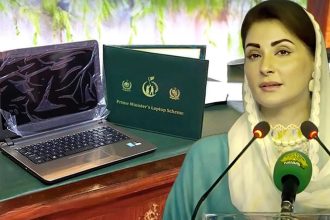The White Lotus Season 3 promised a deep exploration of time, relationships, and meaning. At its best, Laurie’s monologue, delivered with raw intensity by Carrie Coon, should have been the emotional and thematic centrepiece of the season. However, despite its brilliance, the season struggles with uneven storytelling and underdeveloped character arcs.
Here’s a detailed analysis of why The White Lotus Season 3 fails to fully develop, grounded in experience and a deep understanding of television storytelling.
Laurie’s Monologue: A Glimmer of Brilliance
On the final night of their girls’ trip, Laurie sits at dinner with friends Jaclyn and Kate. As they gush about the joys of their vacation, “My garden is in bloom,” Kate beams, while Jaclyn adds, “I’ve been on cloud nine all week” Laurie’s mood darkens. “All week, I’ve just been so… sad,” she confesses. A revelation follows: after years of chasing meaning through work, love, and motherhood, Laurie realizes none saved her. Instead, she finds purpose in the time she spends with her friends. “I don’t need religion or God to give my life meaning,” she says. “Time gives it meaning. We started this life together, and I look at you guys, and it feels meaningful.”
The moment could have been the season’s defining thesis: meaning isn’t found in grand ideologies but in the quiet accumulation of shared moments. It’s a simple, powerful idea perfect for a show like The White Lotus, where characters often grapple with existential drift. However, its impact is dulled by a season that fails to build toward this payoff.
A Season Undermined by Weak Foundations
The preceding episodes needed to lay the groundwork for Laurie’s epiphany to resonate. Past seasons excelled at this think Tanya’s tearful farewell to her mother’s ashes or Harper’s tense exchange with Daphne about marriage. These moments worked because they were earned through careful pacing and character development. In Season 3, Laurie’s shift feels abrupt. We see her drunk, angry, and humiliated throughout the week, but there’s no clear bridge to her newfound clarity. A brief balcony scene hints at introspection, but it’s too fleeting to carry the weight of her monologue.
The other storylines fare worse. The Ratliff family, Timothy, Piper, Saxon, Lochlan, and Victoria, navigate a toxic web of resentment and betrayal. Timothy’s fraud leaves them broke, and his near-murderous breakdown (spiking their piña coladas with poison) ends with Lochlan’s accidental collapse from a tainted protein shake. It’s a shocking moment that jolts Timothy into valuing their time together, but the resolution feels rushed. The family boards their exit boat with little exploration of how this betrayal reshapes them. Saxon, briefly intriguing, fades into the background, while Victoria’s luxury obsession and Lochlan’s college dreams remain unresolved.
Then there’s Rick and Chelsea. Rick’s quest for revenge against hotelier Jim Hollinger, who stole his childhood and, unbeknownst to him, his father, ends in tragedy. He kills Hollinger, only to lose Chelsea in the chaos, leaving both dead among the hotel’s water lilies. It’s a Greek tragedy twist that could’ve hit hard, but Rick’s repetitive brooding and Chelsea’s one-note devotion (expertly played by Aimee Lou Wood) sap its power. The twist is predictable, and their limited screen time early on leaves viewers disconnected.
Missed Opportunities and Thematic Disconnect
The White Lotus Season 3 explores multiple themes, including time, money, and violence, but fails to create a cohesive narrative. The Ratliffs’ story suggests resilience through their shared history, which echoes Laurie’s monologue; however, this theme is abandoned just as it begins to develop. Rick’s storyline highlights the consequences of neglecting what truly matters, but his late-stage escalation feels unearned. Meanwhile, side plots, such as the misleading robbery and the Russian deportees, distract from the main characters without adding depth.
Compare this to Season 1’s slow unravelling of Tanya’s grief or Season 2’s intricate dance of power and infidelity. Those seasons trusted the journey, not just the destination. Season 3, however, hoards its best moments for the finale, leaving earlier episodes feeling aimless. Even with strong performances, Carrie Coon’s vulnerability, the Ratliffs’ simmering tension can’t salvage the lack of buildup.
What Could Have Been
A tighter Season 3 could’ve used Laurie’s monologue as a throughline, reflecting how time shapes meaning across all characters. Imagine the Ratliffs confronting their fractured bonds over episodes, not minutes, or Rick’s rage simmering alongside Chelsea’s quiet pleas. The show’s signature lingering shots face processing revelations could’ve grounded these arcs. Instead, we get flashes of brilliance (Lochlan’s near-death, Laurie’s speech) amid a disjointed whole.
Other themes emerge, such as Belinda’s corruption of Greg’s money and Gaitok’s violent transformation, but they’re underdeveloped. The monk’s warning that “there’s no such thing as a resolution” feels like a cop-out, excusing the season’s refusal to dig deeper.
A Beautiful Idea, Poorly Executed
The White Lotus Season 3 offers a compelling idea: meaning lies in the time we share, not grand achievements. Laurie’s monologue is a standout, and the cast delivers with authority. Yet, the season lacks the craftsmanship to support its ambitions. It’s a reminder that television thrives on the journey, not just a single, stunning moment. For fans, it’s worth watching for Coon’s performance and glimmers of insight, but don’t expect the transcendence of past seasons.






